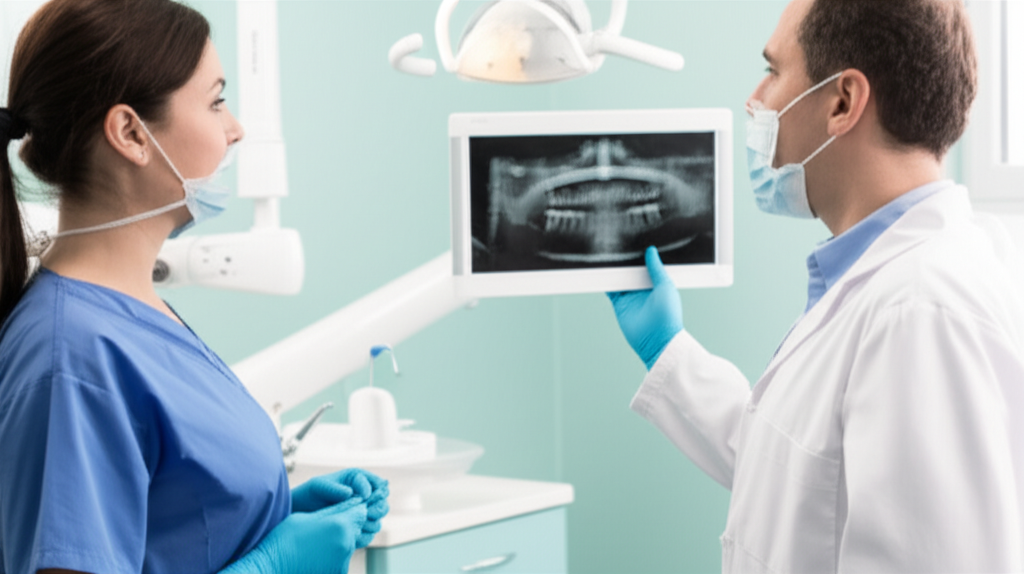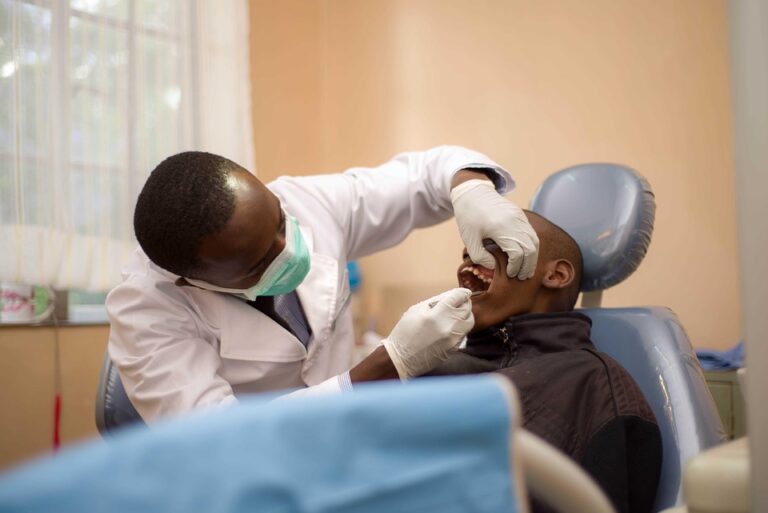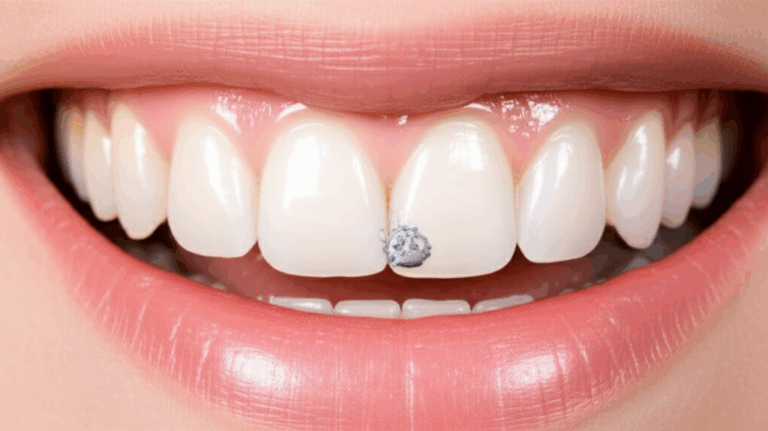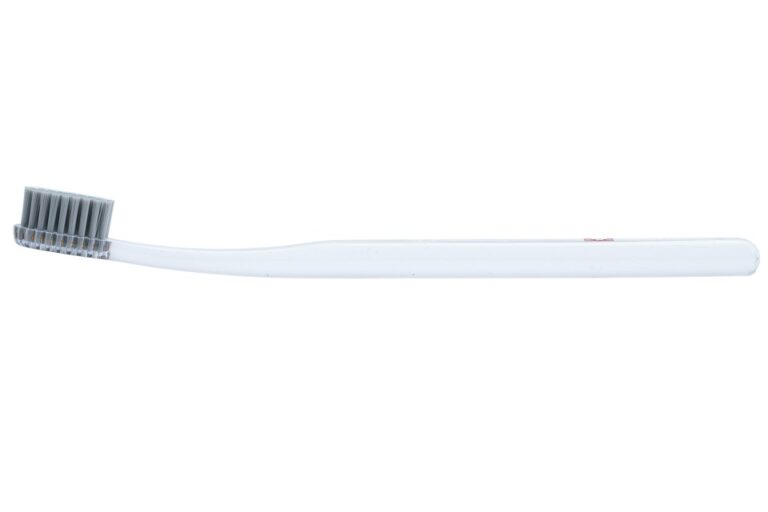
From Hygienist to Dentist: Your Complete Guide to Transitioning from RDH to DDS/DMD
Is It Possible for a Dental Hygienist to Become a Dentist?
If you’re a dental hygienist (RDH), or maybe you’re thinking about a career in dental hygiene, it’s normal to wonder—can a dental hygienist become a dentist? You’ve seen what dentists do, and maybe you want more responsibility, do harder procedures, or even run your own office.
You’re not alone. Many hygienists wonder the same thing. The good news? Yes, it’s possible. Going from RDH to being a dentist happens all the time in clinics and schools across the country. Of course, it takes work and planning, but if you want it, you can do it.
Let’s go through everything you need to know about making this jump—why your experience as a hygienist can actually help you, what dental school is really like, and every step to get there. This way, you can figure out if this new path is right for your future.
In This Article
- Introduction: The Ambition to Advance
- The Clear Answer: Yes, an RDH Can Become a DDS/DMD
- Understanding the Dental School Path: An Overview
- Step-by-Step Guide: Your Transition from RDH to DDS/DMD
- Fulfilling Academic Prerequisites (If Needed)
- Mastering the Dental Admission Test (DAT)
- The Application Process (AADSAS)
- The Dental School Journey (DDS/DMD Program)
- Licensure and Beyond
- Leveraging Your Hygienist Experience: A Competitive Edge
- Challenges & Considerations for RDHs Becoming Dentists
- Is the Transition Worth It? Benefits and Career Outlook
- Alternative Paths for Advanced Dental Hygiene Careers
- Conclusion: Charting Your Future in Dentistry
Introduction: The Ambition to Advance
So you’re thinking about your next step in dental work. Maybe you like talking with patients, teaching them good habits, and stopping problems before they start—but you also want to do more. Maybe you want to diagnose, make treatment plans, help fix smiles, or even own your own dental business. Or, maybe you just want to know—how far can you go in your dental job?
Moving from RDH to DDS (Doctor of Dental Surgery) or DMD (Doctor of Dental Medicine) is not just a daydream or some wild idea. Others have done it before. As a hygienist, you already know a lot, but there are also new challenges. This guide will show you the good parts and the hard parts, step by step, so you get honest facts—not just sales talk.
The Clear Answer: Yes, an RDH Can Become a DDS/DMD
Let’s get straight to it: Dental hygienists can become dentists. There’s no rule that says you have to stay only a hygienist. Every year, many dental hygienists become dentists, specialists, or even dental school teachers.
And your background as a hygienist isn’t just a starting point. It actually helps. Here’s why:
- Real hands-on work: You already know how to work with patients and dental tools, and how a dental office flows.
- Good knowledge about mouths and teeth: You work with gum health, patient lessons, and stopping problems—right at the heart of dental care.
- Extra respect: Dental schools like students who know what real patient care is like.
But, this isn’t a “shortcut.” No matter who you are—biology grad, hygienist, dental assistant—you have to meet all the main requirements to get into dental school.
Understanding the Dental School Path: An Overview
Going from dental hygiene to dentist is like going from co-pilot to flying the plane yourself. You get more responsibility, but you can do more for people too. Here’s the smaller version of what you’ll need to do:
Now, let’s look at each step.
Step-by-Step Guide: Your Transition from RDH to DDS/DMD
4.1. Fulfilling Academic Prerequisites (If Needed)
Dental schools require you to know your science. Even if you have an associate’s or bachelor’s in dental hygiene, it likely just covered basics—biology, a little chemistry, anatomy, and some healthcare classes.
But most dental schools want:
- Biology (with lab)
- General Chemistry (with lab)
- Organic Chemistry (with lab)
- Physics (with lab)
- English Composition
Some schools also want biochemistry, microbiology, calculus, and anatomy/physiology.
What if your hygiene school missed some classes?
It’s normal for dental hygienists to need an extra year or two of science classes before they can apply to dental school. Many people take these at a college or a special post-bacc program for health students.
Keep an eye on your GPA:
Dental schools look at your grades, especially in science. A strong science GPA is about 3.2-3.8 or higher. Lower is still possible, but then you’ll need above-average DAT scores and references.
Can your old credits count?
Some classes from your hygiene training might count (like human biology), but bigger sciences like chemistry or physics often aren’t included if you just have an associate’s. Show your transcript to a pre-dental advising office to be sure.
4.2. Mastering the Dental Admission Test (DAT)
Think of the DAT as the “big tryout” for dental school. It’s a 4.5-hour test on a computer that checks:
- Science (biology, general/organic chemistry)
- Perceptual Ability (seeing and working in 3D—like a “mind” test for your hands)
- Reading skills
- Math skills
Is the DAT hard?
Yes. Even science fans often find it tough. Most people study really hard for three to six months.
Help for studying:
- Buy a popular DAT study course or book.
- Try online questions and time yourself.
- Focus most on any science topics you haven’t done in years.
What DAT score do you want?
Schools let in different scores, but between 19–21 (Academic Average) is good for most programs.
4.3. The Application Process (AADSAS)
You apply to dental school using ADEA AADSAS (the main online application site for dental schools). You’ll need:
- Transcripts from every school you went to.
- DAT scores
- Personal statement telling them why you want to switch from hygiene to dentistry.
- Letters of recommendation: At least one from a dentist, one from a science teacher; as a hygienist, a letter from your school boss or work supervisor is also helpful.
- Shadowing and work experience: Even if you’re a hygienist, schools usually want you to “shadow” a dentist a little bit. It shows you know what dentists do each day.
How can a hygienist’s application stand out?
Talk about your years working with patients, your teamwork, how you understand real dental life. Show you’re ready for new challenges and ready to learn even more.
4.4. The Dental School Journey (DDS/DMD Program)
If you get in—great job! Here’s what comes next.
How long is dental school?
It’s almost always four years.
What’s the program like?
- First two years: A lot of science—anatomy, how the body works, medicine, and mouth biology.
- Lab work: You practice on plastic teeth and fake heads before touching real patients.
- Final two years: Treating real patients with a teacher watching.
Do hygienists have an edge?
You’ll feel comfortable with things like talking to patients and basic mouth care. But you’ll have to learn a lot more about treating diseases, fixing teeth, and making big treatment plans.
4.5. Licensure and Beyond
After you finish school, you’ll still need the final license.
- National board exam: Most states use the INBDE, which checks medical and clinical thinking.
- Live test: You must do real or model-based dental exams in front of testers.
- Other state rules: Some places want more tests, like on dental law.
Want a specialty?
You can do a dental residency to learn more, like for braces, gums, or jaw surgery.
Leveraging Your Hygienist Experience: A Competitive Edge
Let’s talk about your strengths as a hygienist.
Good Clinical Skills
You really know your way around a mouth and dental tools, probably a lot more than a student who comes straight from college.
Know How a Dental Office Works
You’ve seen the daily routine—appointments, teamwork, what patients need, and how staff gets along.
Real Drive to Succeed
If you’re trying to make this big change, you’re serious about your goal. You know what’s good and hard about dental jobs, and you won’t give up easily.
Challenges & Considerations for RDHs Becoming Dentists
It’s not easy to make this switch. Here are things to think about:
Time Needed
4-6+ years—that’s how long you’ll spend between extra classes, dental school, and any extra studying. It’s not a quick break—it’s a whole new degree.
Cost
- Tuition: Dental school can cost a lot. You might see $200,000 to $500,000 for four years, depending on which school you pick and where you live.
- Monthly bills: You’ll still need to pay rent, food, and insurance—without making a full-time salary.
- Loans: Most dental students need big student loans. Some get scholarships, but those are not common.
Harder Classes
Dental school is not just “hygiene plus.” You’ll be learning a lot about science, medicines, fillings, exams, planning, and dental surgeries. It goes very fast and is pretty stressful.
Learning New Things
You used to focus just on cleaning and preventing problems. Now you’ll be expected to do everything—from fixing teeth and making crowns to pulling teeth and sometimes simple surgeries. You’ll use what you already know, but you have to learn to think like a doctor, not just a hygienist.
Your Age and Life Situation
Some hygienists go back to school right after their first degree, others wait for years. There are students in dental school who are parents or have a home to support. Older students are common, but you’ll need help from family or friends to make enough time and energy.
Is the Transition Worth It? Benefits and Career Outlook
There is no one right answer, but here are some clear benefits:
You Can Do More
As a dentist, you’re in charge. You diagnose, plan, fix teeth, and treat all mouth problems.
Big Salary Difference: Dentist vs Hygienist
Dental hygienists in the US usually get $80,000–$90,000 per year, while dentists often average $160,000–$200,000+ a year (according to the Bureau of Labor Statistics). That’s a lot more money—but remember, a lot will go to paying back student loans at first.
More Freedom and Leadership
Dentists can own offices, be the boss, make the big decisions, and take special training. If you want to build a business, being a dentist can make that real.
More Career Happiness
Many hygienists who become dentists say they feel very happy to help in new ways, train others, and finish tough cases from beginning to end.
Personal and Professional Growth
Going to dental school and becoming a dentist will challenge you and help you grow in science, leadership, business, and patient care—all at once.
Alternative Paths for Advanced Dental Hygiene Careers
If dental school isn’t right for you, there are still plenty of great options:
- Master’s in Dental Hygiene (MSDH): You can teach, do research, or help run hygiene schools.
- Advanced Dental Hygiene Practitioner: A few places let hygienists do more, like simple fillings or exams.
- Dental Public Health: Help people in community clinics, the government, or health charities.
- Dental Sales or Company Jobs: Big dental companies need people with real clinical experience for training, education, or product work.
To see more about improving oral health or options for different specialties, you might find these resources interesting:
Frequently Asked Questions
How many dental hygienists become dentists each year?
There isn’t an official count, but dental schools welcome “non-traditional” students like hygienists every year.
Are there fast-track dental programs for hygienists?
Some schools might count your science classes, but right now there are not many programs that let you completely skip or shorten dental school.
Does my experience help me get into dental school?
Yes. Your time with patients, your understanding of clinic life, and knowing the realities of dental work are all helpful. Schools like students who know what they’re getting into.
Is dental school harder for hygienists?
Hygienists tend to do well in working with patients and teaching about prevention—but might need to study more for hard sciences and the dental fixing part. School is tough for everyone.
Where can I find more advice?
You can check out info from the American Dental Education Association (ADEA) and the American Dental Association (ADA).
Conclusion: Charting Your Future in Dentistry
Let’s sum it up:
- Yes, you can do it: Dental hygienists can become dentists.
- You’ll need: Science classes, a good DAT score, a strong application, four years of dental school, and a license.
- You bring strengths: Clinical skills, real-world dental knowledge, and maturity.
- It’s a big challenge: It takes money, time, and hard work, but…
- Big rewards: More skills, a bigger role, more pay, and the chance to really change your patients’ lives.
What should you do now?
Talk to a pre-dental advisor. Watch a dentist work if you haven’t. Check your classes, plan your steps, and make a timeline.
Most important, think about your “why.” If you care about your patients, want to become a leader, and love learning, this path might be the right big leap for you.
Your smile—and your career—can keep growing. The next chapter is waiting for you.
Looking for more about dental specialties, modern types of dental work, or what goes into making great dental restorations? These overviews on digital dental lab technology or crown and bridge work might help as you explore the dental world more.








